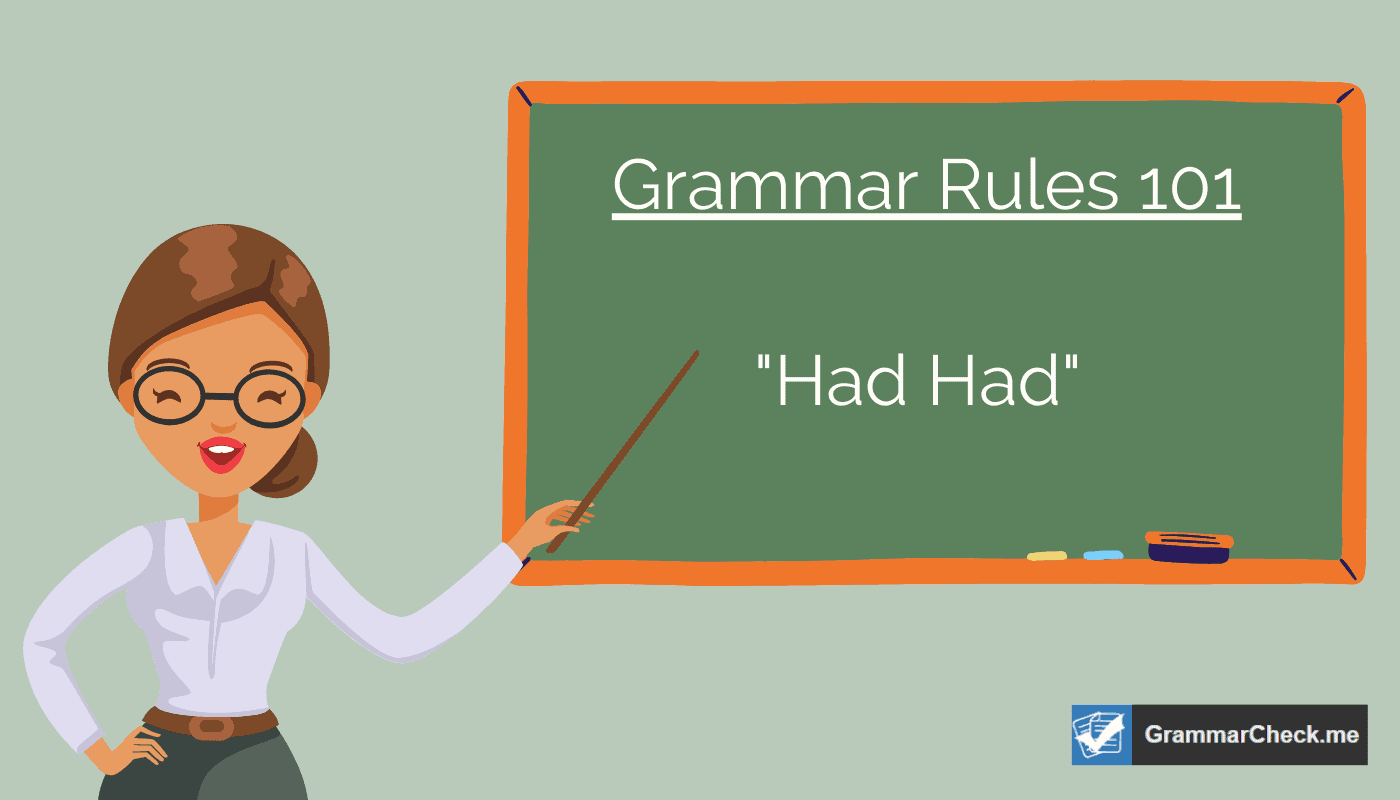“Have had” is present perfect tense indicating possession or experience in the past continuing to the present, while “had had” is past perfect tense indicating an action completed before another action or time in the past.
Many writers second guess themselves before writing the phrases “have had” and “had had”. For one, they just seem awkward. There is no chance they are grammatically correct, right? In this post, we’ll fully explain the “have had” and “had had” grammar rules. Use these tips and tricks in your writing!
Had Had Grammar Rules

“Had had” is the present perfect form of have. It is used to indicate that something has happened in the past and is still relevant in the present.
We say “had had” when talking about something in the past. Here are some examples of how to use it when writing paragraphs.
- He felt fantastic after he had had a chance to speak with his father.
- The crowd booed him before he had had a chance to explain himself.
- Her mom punished her before she had had an opportunity to apologize.
- She was rejuvenated after she had had a great weekend.
What Are Sentence Examples That Contain The Phrase “Had Had”?
Below are sentence examples that contain had had.
| Sentence Examples |
|---|
| By the time he arrived, I had had lunch. |
| She realized she had had too much coffee. |
| They had had discussions about moving before deciding to stay. |
| Before the meeting, we had had concerns about the project’s direction. |
| He had had the same problem with his car before. |
Have Had Grammar Rules
The present perfect tense is one of the most difficult tenses to use correctly, and even native speakers sometimes have trouble with it. The main thing to remember is that the present perfect is used to talk about an action that happened in the past, but that is still relevant in the present.
Let’s look at a few examples to make further explain the point.
- If you say “I have had a lot of experience with this software,” it means that you’ve used it before and you’re still familiar with it today.
- “I have had a sprained ankle for 4 weeks.” This means you broke your ankle in the past, and it is still broken today.
- “I have had too much rest since retiring from my job.” This means you started getting rest when you retired, and are still getting lots of rest today.
Grammatically speaking, “have had” is the correct way to form the present perfect tense of the verb “have.” However, in informal speech, people often say “have got” instead of “have had.” Grammar rules can be tricky, take the however grammar rules for example. It takes some practice! You have to be aware of your word choice with informal and formal writing. For example, you would not want to use words like mama or momma in a formal piece of writing.
What Are Sentence Examples With “Have Had”?
Below are sentence examples that contain have had.
| Sentence Examples |
|---|
| I have had a headache all day. |
| They have had the same car for ten years. |
| We have had some trouble with our new system. |
| You have had enough time to finish the project. |
| She has had three meetings this morning. |
When To Use Past Perfect vs Present Perfect Tense
Many new writers confuse the past perfect tense and the present perfect tense. For the most part, past & present tense rules follow descriptive grammar rules.
- The past perfect tense is used to describe an event that happened before another event in the past. For example, “I had walked to the store before it started raining.”
- The present perfect tense, on the other hand, is used to describe an event that happened at some unspecified time in the past. For example, “I have seen that movie three times.”
Double Words
There are so many rules in the English language. It is so easy to make a silly mistake and ruin your credibility with an audience. This makes mastering grammar even more important.
Double words are one of those grammar rules that just don’t seem right. The technical term is Epizeuxis. This is when you use the same word back to back in immediate succession. It can be done for comedic or dramatic effects.
Frequently Asked Questions
Yes, it is the past perfect form of “have.” The past perfect is used to describe an event that took place before another event in the past. For example, he felt better the next day after he had had a great night’s sleep.
You might say, “Mark felt amazing after he had had a chance to redeem himself.”
The phrase “had had” is often used to refer back to an earlier time. For example, someone might say “I had had a busy day” to mean that they had a busy day earlier. The phrase can also be used to describe something that happened in the past, but is no longer happening. For example, someone might say “I had had a cold, but it’s gone now.”
Yes, “had have” is grammatically correct. It is the present perfect of the word “had”. “I have had a broken arm.” This means that even though the event of breaking your arm occurred in the past, it still has an effect on your present-day life.
The Bottom Line
Now you have a complete understanding of the grammar rules for “have had” and “had had”. These phrases might seem awkward, but they can be used correctly in your writing. If you can’t understand these grammar rules, then try a tool like QuillBot or Grammarly. We even have our very own spell grammar check tool that is completely free! Use our tips to take your writing to the next level.
